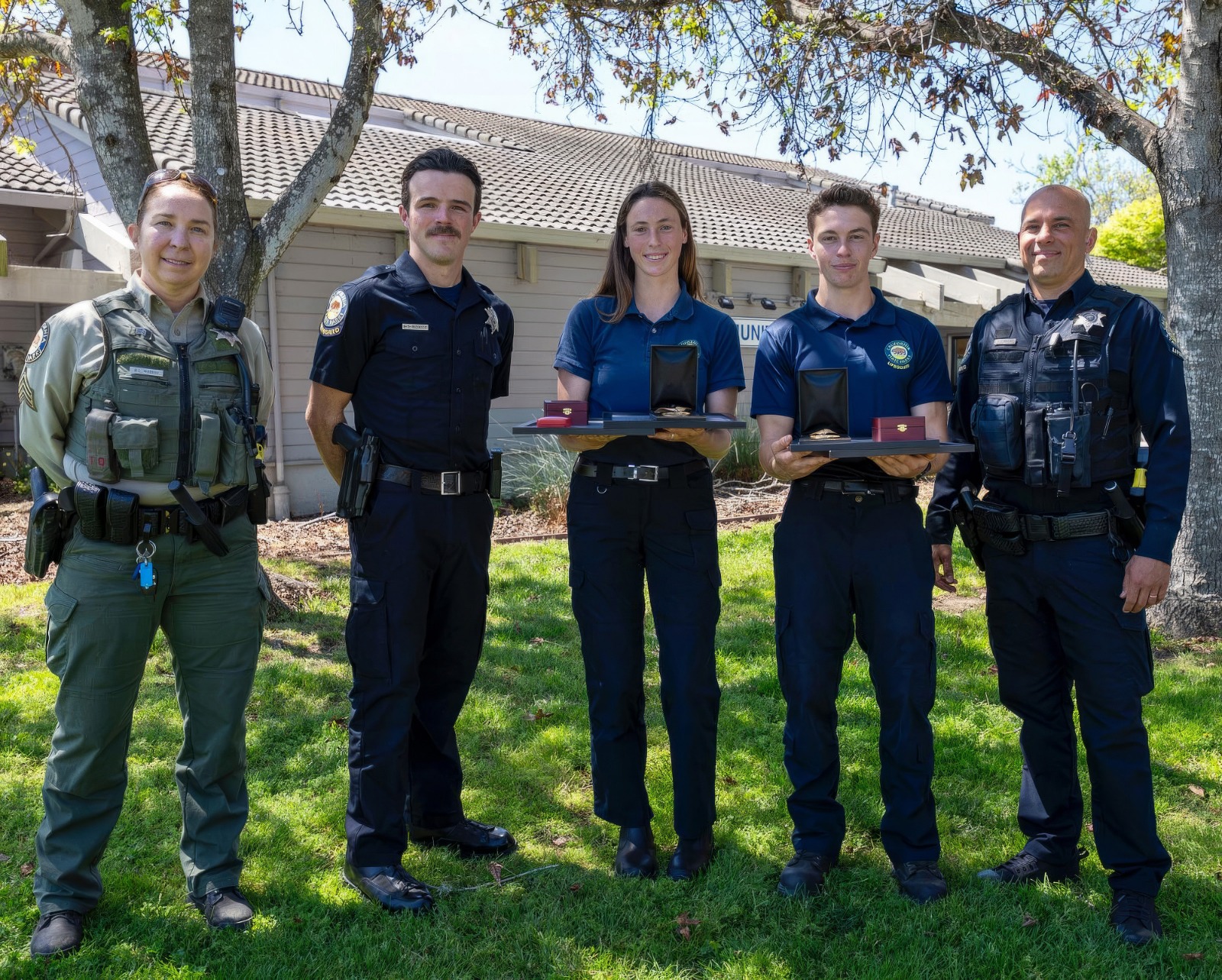
By Aly Brown. Bay City News.
Listen to this note:
The California Surf Lifesaving Association recently honored two lifeguards with Medals of Valor for a daring nighttime rescue amid massive waves in Half Moon Bay.
For their bravery, California State Parks lifeguards Riley Rhodes and Max Hunter were recognized last Thursday at the Capitola Community Center during a well-attended ceremony.
“It was nice to see so many lifeguards together in one room, and it was definitely very meaningful to be honored by all of them, especially the ones I went to train with,” Hunter said. “All of my supervisors showed up. It was definitely cool.”
The rescue took place on the evening of January 21, 2023. Shortly after 5 p.m., near the end of their shift, they received a 911 call for a water rescue at Poplar Beach in Half Moon Bay. Rhodes and Hunter oversee a district that spans about 40 miles of coastline, and they often respond to calls just like other lifeguards. The district works in partnership with local fire departments and other first responder agencies like the U.S. Coast Guard and California Highway Patrol.
